
Providing affordable, accessible, high quality, relevant Science Engineering and Technology programmes
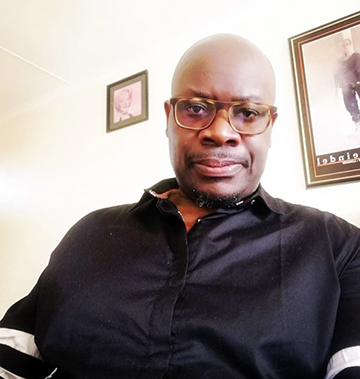
Prof Mbuyu Sumbwanyambe
After months of rolling power cuts, President Cyril Ramaphosa declared a national state of disaster on energy, promising to appoint a minister of electricity to solve the crisis.
South Africa's (SA) state-owned power company Eskom, which produces about 90 per cent of the country's electricity, is beset with output challenges because of relying heavily on old systems that are poorly managed, clouded with widespread malfeasance.
The crisis, which began in 2008 through daily power cuts to ease output duress as a result of demand – which is now commonly referred to as load-shedding, was introduced to reduce the overburdened power system, which affects the country's 60 million people, including businesses, hospitals and daily routines of the population. Prof Mbuyu Sumbwanyambe from the College of Science, Engineering and Technology shares his views on how a solution can be reached.
Q: Is the appointment of the minister of electricity going to have any weight towards solving Eskom's energy crisis?
A: This appointment is of utmost importance because it will allow quick energy projects to be established and expedited. Electricity has become critical in South Africa, and this appointment will accelerate many projects, for example: The minister will be able to focus on necessary energy ventures vital in driving techno-social and economic development. Also, the ministry will ensure that clear timelines and milestones are established.
There is an immediate need to revive the Southern Africa Power Pool (SAPP), which is relatively defunct. I suggest that the Southern African Development Community (SADC) countries organise themselves and work together to ensure regional power sustainability. For example, in one of its priorities, the SADC region is set to build a dam on the Congo River. The dam was meant to supply electricity to most of the SADC countries. But it has not materialised. Moreover, the Congo River has large volumes of water unaffected by the summer season. As such, these and many other projects should be of immediate concern for the new minister of electricity.
Q: Was the declaration of a national state of disaster timely?
A: Yes, it was timely, seeing that people have become so much agitated, businesses are not operating efficiently and retrenchments are looming. This will help the government expedite things, for example, how much money should be committed towards energy projects. People have complained about this, but it looks like legislation cannot deal with it. The power crisis in South Africa is not new, but it is persistent in such a way that people have become weary and frustrated about it. To me, the pronouncement of the national state of disaster is welcome, as it will give government powers to release resources to tackle the disaster, appoint people to provide emergency services, and bypass existing laws in the procurement and delivery of goods and services. All I am hoping for is that there will be no loopholes for people to enrich themselves.
Q: There is an ongoing debate on whether South Africa should continue using fossil fuels, further contributing to climate change. What is the feasible projected alternative?
A: At the moment, that would be an immediate solution. However, SA must continue using fossil fuels. As much as we know that the country's carbon footprint is high in the continent, it is not the highest anywhere else. The lasting solution could have been nuclear, but this isn't easy with less expertise in nuclear in South Africa. If we talk about pollution, I believe China is one of the major polluters, but less is being said for it to reduce. We all support the mitigation towards climate, but this should be a global consensus.
Q: How can Unisa provide solutions towards sustainable electricity supply to meet the demands of not only the 21st century and its technologies, but to oversee the country's long-term sustainability, while also observing the need to go green?
A: Unisa is an African university in the service of humanity. It has quite a massive footprint across Africa and globally. This could be used to harness different intellectual capabilities to develop sustainable energy ecosystems. With the vision of the new Principal and Vice-Chancellor (VC), Prof Puleng LenkaBula, Unisa has started positioning itself as an expert in sustainable energy solutions. The Department of Electrical Engineering and the establishment of Energy research institutes within CSET have focused on research and projects that will avert the energy crisis. The new technologies, to mention a few, include underwater grid systems (which depend on ocean currents), biogas, wind and solar. Also, research on microgrid systems across CSET will provide solutions to self-sustainability in homes or regions. In addition, we will be turning the Unisa Florida car park into solar parking bays to generate electricity for the campus. We also want to make them more intelligent through Artificial Intelligence.
Q: Following the CSET's success at the 2022 Times Higher Education's Subject Rankings, which saw Unisa (jointly with North-West and Stellenbosch Universities) ranked number one in engineering courses, what can we further expect this year from the college?
A: There is a lot of expectation from the school of engineering, and I must say, it was very unexpected for us to lock horns with well-established institutions such as WITS, UCT and UJ. But remember that CSET is growing in research stature. We are involved in a lot of things. We want to partner with other African universities for knowledge and research exchanges. This is vital for us as CSET to produce more African energy experts. We don't want to leave any African knowledge systems unturned.
We want to become one of the best engineering schools in the country and, by extension, across Africa. CSET is a family; we work together as one and constantly reinvent ourselves. More is yet to come; with pronouncements of the niche areas by the VC and the encouragement for us to recruit high-calibre academics, I see Unisa making substantial academic and research strides across the continent. Actually, a long time ago, academics shunned working at Unisa. Today, the tide has turned, especially at CSET, evidenced by the quality of our programme offerings for academics and students who prefer this institution.
Prof Mbuyu Sumbwanyambe is the Acting Chair and Electrical Engineering Lecture at the College of Science, Engineering and Technology. He is a member of the Institute of Electrical and Electronic Engineers, the South African Institute of Electrical Engineers and the International Association of Engineers. He has an MEng in Electrical and Electronic Engineering from the University of Johannesburg and a PhD in Engineering Management from the same university.
Sumbwanyambe has a multi-disciplinary background with varied research interests, which include risk management, application of game theory, digital communication, resource management, regulation and policy issues, telecommunication and ICT engineering, economic and social ICT delivery, energy efficiency, demand side management, AI, and information systems evaluation.
#Unisa150
* By Godfrey Madibane, Acting Journalist, Department of Institutional Advancement
Publish date: 2023/02/24
 Unisa celebrates a project of hope, dignity and student success
Unisa celebrates a project of hope, dignity and student success
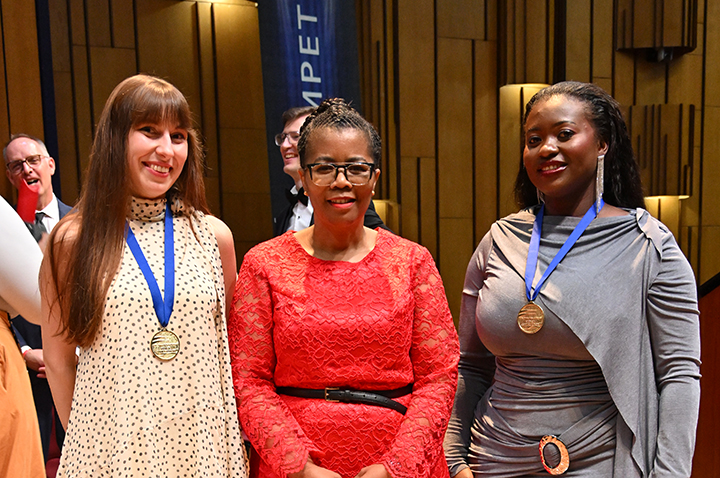 Women vocalists take top honours at Unisa's globally renowned showcase
Women vocalists take top honours at Unisa's globally renowned showcase
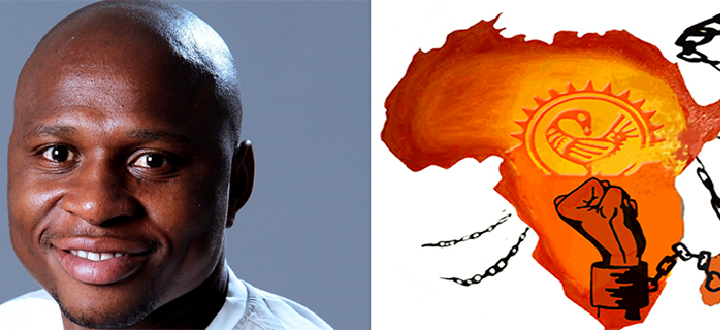 African wealth is dependent on investment in education and development
African wealth is dependent on investment in education and development
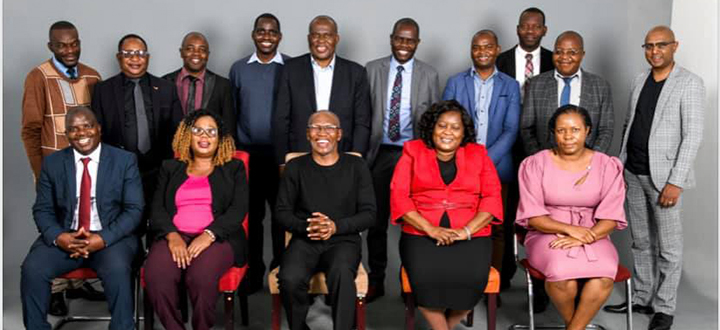 Unisa celebrates matric result success at Correctional Services ceremony
Unisa celebrates matric result success at Correctional Services ceremony
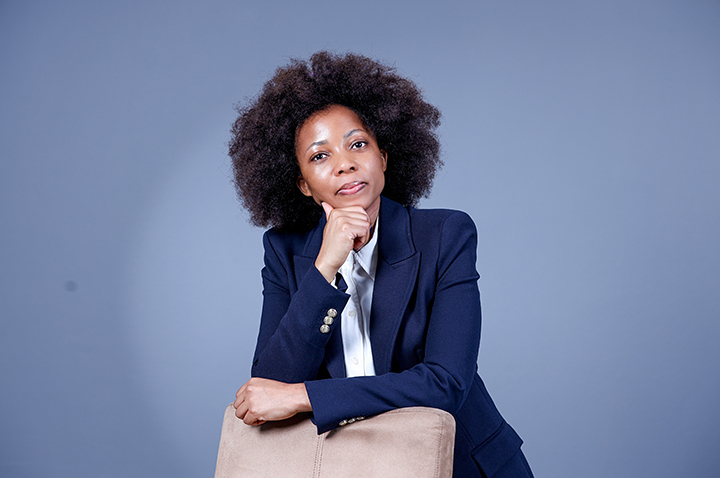 Unisa ICT Director recognised among acclaimed IT leaders
Unisa ICT Director recognised among acclaimed IT leaders